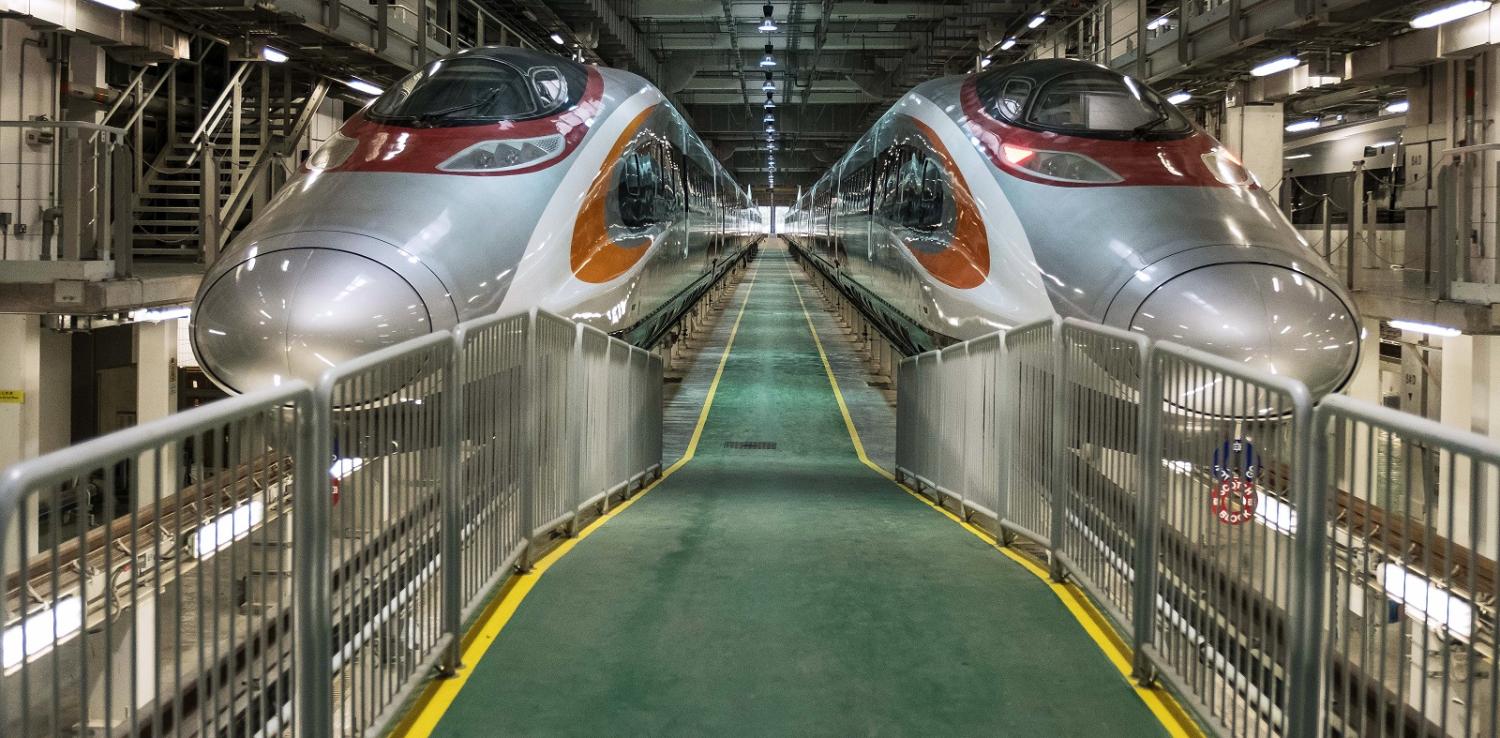A border is generally accepted to be a line that defines the territory of a country or an administrative zone and typically encircles a particular area. The Hong Kong government appears to have adopted a different definition, however, with its proposal to put a new border in the city centre.
Hong Kong can be seen as a laboratory for new and novel approaches to politics. For the last 20 years it has experimented with the 'one country, two systems' formula imposed by the late China leader Deng Xiaoping. Now the new rail terminal in the West Kowloon district, right in the heart of the city, may come under mainland Chinese law.
Officials have said it will be more efficient for travellers if mainland customs and immigration officials will be in situ when the Guangzhou-Shenzhen-Hong Kong Express terminal opens next year, but the proposal has caused a public outcry. According to the Basic Law (the mini constitution of Hong Kong as a Special Administration Region under China), Hong Kong retains its own legal system. Mainland law enforcement is not permitted.
Hong Kong's Secretary for Justice Rimsky Yuen has argued Basic Law does not define Hong Kong's border. He has framed the establishment of an area where mainland law will be allowed as the 'leasing' of land to mainland. Others have suggested the Hong Kong government is ceding land in a bid to speed up the city's integration with the mainland.
Aside from the objections to the proposal itself, there is also a sense it will be one more step on a road many don't want to travel. Hong Kongers believe the past success of their city owes much to personal freedoms enshrined in the rule of law. Fears these freedoms are under threat deepened under the recently concluded five-year term of Chief Executive Leung Chun-ying, whose policies sparked the greatest conflict between Hong Kong and mainland China since handover in 1997.
In late 2015, Hong Kongers learnt from the curious case of the missing booksellers that one could be taken away by mainland officials and disappear from view if one was deemed to have offended mainland authorities, thanks to the account given by one of the five who went missing, Lam Wing-kee. And just last month, four pro-democracy lawmakers were 'disqualified' by the court, which ruled against them for not taking the required oath.
If the Express Rail Link checkpoint proposal is legally challenged, Hong Kongers know their government has the option of seeking yet another interpretation of the Basic Law from Beijing, now almost the routine response to political controversy emerged. The most recent interpretation of Basic Law led to the disqualification of two young lawmakers, who were judged to have violated the oath-taking requirements when they took their seats at the Legislative Council. July’s disqualification of four more lawmakers also flowed from this interpretation.
Since the Express Rail Link build was first put forward over a decade ago, the government and pro-Beijing camps have been trying to convince Hong Kongers that this astronomically pricey infrastructure will be immensely beneficial for the city; that this is an investment for the future, and that the economic benefits outweigh all other consideration.
But what many Hong Kongers see embodied in the proposed governance arrangement for the new terminal is a continued erosion of the freedoms that distinguish Hong Kong from the mainland. They were reminded of those freedoms last month when the Chinese Nobel Peace Prize laureate Liu Xiaobo died of liver cancer and was hastily cremated. Hong Kongers mourned his death in a vigil in the city. Unlike on the mainland, where memories shared of Liu were largely removed and censored, Hong Kong was able to publicly mourn him and freely expressed concern for his widow Liu Xia, still under house arrest in China.
China promised Hong Kong 50 years unchanged when the city’s sovereignty was handed over by Britain in 1997. For those who have grown up in Hong Kong, the treatment of Liu Xiaobo was frightening and shocking. So was the treatment of the booksellers and the disqualification of elected lawmakers. Allowing mainland laws to be implemented would be another example of a worrying development that has come much sooner than 2047.
One day, many in Hong Kong fear, 'one country, two systems' will vanish alongside freedoms and justice, and Hong Kong will be just the same as all other Chinese cities.
